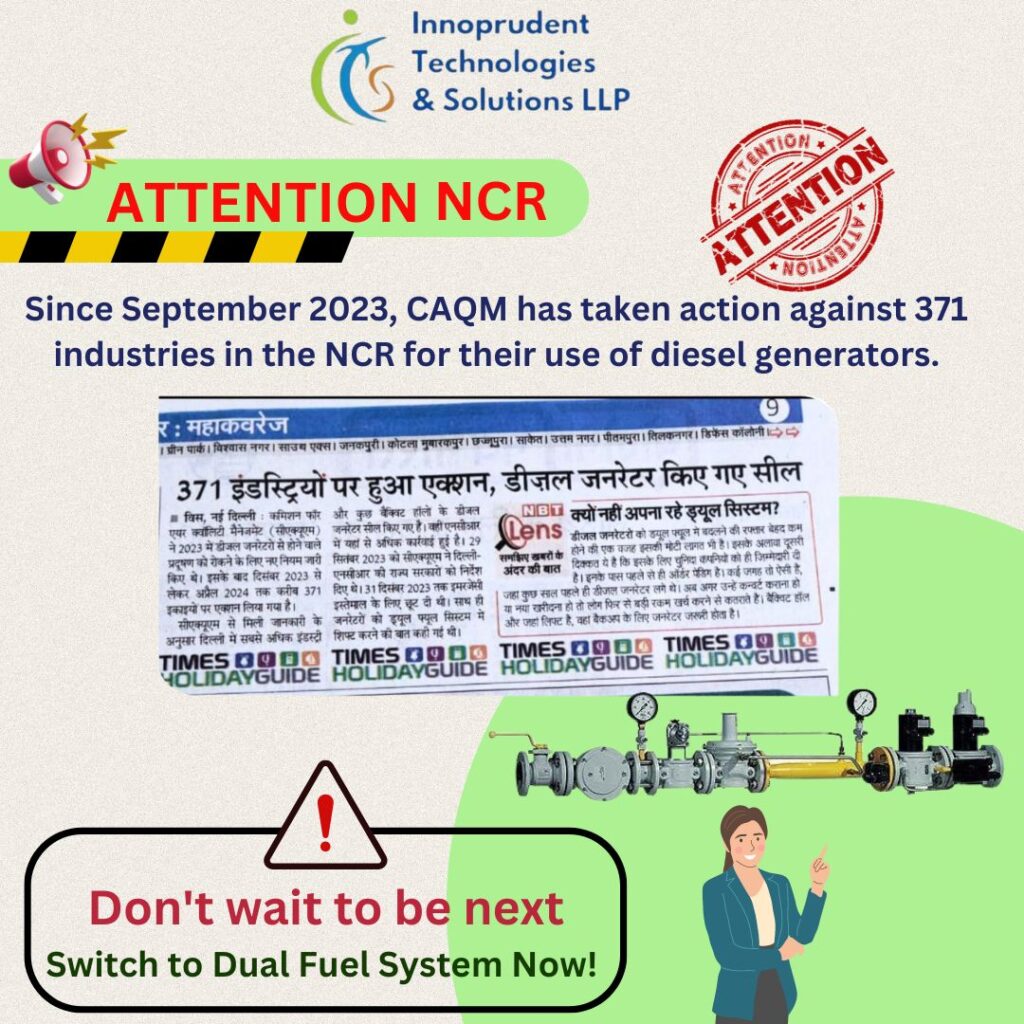Diesel generators have been a reliable source of backup power for various industries, businesses, and even homes for many years. They offer a stable and consistent source of electricity during blackouts and in remote areas where grid power is unavailable.
However, as technology advances and environmental concerns grow, it becomes essential to retrofit diesel generators to make them more efficient, environmentally friendly, and compliant with current regulations.
Understanding Diesel Generators
Before delving into the importance of retrofitting diesel generators, it’s essential to understand what diesel generators are and how they work.
Diesel generators are machines that use diesel fuel to produce electricity.
They consist of two main components: an internal combustion engine and an alternator.
The engine burns diesel fuel, and the mechanical energy generated by the engine is converted into electrical energy by the alternator. This electrical energy can then be used to power various devices and equipment.
Diesel generators are known for their reliability and ability to provide continuous power for extended periods. They are commonly used in situations where a stable power supply is crucial, such as hospitals, data centers, industrial facilities, and as backup power sources for homes and businesses.
The Need for Retrofitting
While diesel generators have proven their worth over the years, there are several reasons why retrofitting them has become necessary.
Environmental Concerns
One of the most pressing issues of our time is environmental conservation. The emissions produced by diesel generators are a significant source of air pollution and greenhouse gases.
Burning diesel fuel releases pollutants like nitrogen oxides (NOx), sulfur dioxide (SO2), and particulate matter into the atmosphere. These pollutants can have adverse effects on air quality and contribute to climate change.
Retrofitting diesel generators can significantly reduce their environmental impact. New technologies and components can be added to existing generators to lower emissions and improve their overall efficiency.
This is not only beneficial for the environment but also helps organizations meet regulatory requirements and reduce their carbon footprint.
Fuel Efficiency
Older diesel generators may be less fuel-efficient, meaning they consume more diesel fuel to generate the same amount of power. Retrofitting can involve upgrading engine components and systems to improve fuel efficiency. This not only reduces operational costs but also conserves valuable energy resources.
Noise Reduction
Diesel generators can be noisy, especially older models. High noise levels can be a nuisance and may not be suitable for certain environments, such as residential areas or hospitals. Retrofitting can include soundproofing measures and the installation of quieter components to reduce noise levels.
Regulatory Compliance
Regulations regarding emissions and environmental standards are becoming increasingly stringent. Older diesel generators may not meet the current requirements, which can lead to legal and financial consequences. Retrofitting ensures that generators comply with the latest regulations, avoiding potential fines and penalties.
Reliability and Performance
As diesel generators age, their performance and reliability can deteriorate. Frequent breakdowns and maintenance issues can disrupt power supply and lead to costly downtime. Retrofitting can address these problems by upgrading key components, thus increasing the generator’s reliability and performance.
Benefits of Retrofitting Diesel Generators
Now that we’ve established the need for retrofitting diesel generators, let’s explore the various benefits of this process.
Environmental Benefits
Retrofitting diesel generators with emission control technologies can significantly reduce harmful emissions. This, in turn, contributes to better air quality and helps combat climate change. Lower emissions of pollutants like NOx and particulate matter have a direct positive impact on public health.
Cost Savings
Improving the fuel efficiency of diesel generators can lead to substantial cost savings. By using less diesel fuel to generate the same amount of power, organizations can reduce their operational expenses. Additionally, retrofitting can extend the lifespan of the generator, reducing the need for frequent replacements.
Enhanced Performance
Upgrading the components and systems of a diesel generator through retrofitting can enhance its overall performance. This means more reliable power generation and fewer interruptions. For businesses, this translates to increased productivity and reduced downtime.
Noise Reduction
For applications where noise levels are a concern, retrofitting can make diesel generators quieter. This is especially important in residential areas, hospitals, and other noise-sensitive environments. Reduced noise levels also lead to a better working environment for operators and maintenance personnel.
Regulatory Compliance
Staying compliant with environmental regulations and emission standards is crucial for avoiding legal issues and fines. Retrofitting ensures that diesel generators meet the latest requirements, providing peace of mind for operators and business owners.
Retrofitting Technologies and Techniques
There are several technologies and techniques used in retrofitting diesel generators to achieve the aforementioned benefits:
- Emission Control Systems
Emission control systems can include selective catalytic reduction (SCR) and diesel particulate filters (DPF) to reduce NOx and particulate emissions. These technologies help to clean the exhaust gasses before they are released into the atmosphere.
- Engine Upgrades
Upgrading the engine components can improve fuel efficiency and reduce emissions. This may involve modifying the combustion process, enhancing the injection system, and optimizing the air intake.
- Noise Reduction Measures
To reduce noise levels, retrofitting may include the installation of soundproofing materials and components. Quieter cooling systems, exhaust silencers, and vibration isolation can all contribute to a quieter generator.
- Remote Monitoring and Control
Modern retrofitting may also involve the integration of remote monitoring and control systems. This allows for real-time tracking of generator performance, fuel consumption, and emissions, which can help optimize operation and maintenance.
- Fuel Management Systems
Efficient fuel management systems can be retrofitted to ensure that the generator consumes fuel more efficiently. This includes monitoring and controlling fuel delivery, injection timing, and pressure.
Case Studies Showing The Impact of Retrofitting
Let’s take a look at a couple of real-world examples to understand the impact of retrofitting diesel generators better:
Case Study 1: Healthcare Facility
A hospital in a densely populated urban area relied on diesel generators as a backup power source. The noise generated by the generators was a significant concern for both patients and staff.
Retrofitting measures included the installation of noise-reduction components and a remote monitoring system. This reduced noise levels significantly, leading to a more comfortable environment for patients and improved working conditions for the hospital staff.
Case Study 2: Industrial Plant
An industrial plant operating several older diesel generators faced increasing pressure to meet stricter emission standards.
Retrofitting involved the installation of selective catalytic reduction (SCR) systems and engine upgrades to reduce NOx emissions.
These upgrades not only allowed the plant to comply with regulations but also improved fuel efficiency, resulting in significant cost savings over time.
Some Related Posts
Wrapping Up
In today’s world, where environmental concerns, regulatory compliance, and cost savings are paramount, retrofitting diesel generators has become a necessity. By retrofitting, we can reduce emissions, improve fuel efficiency, enhance performance, reduce noise, and ensure compliance with environmental regulations.
Retrofitting offers a win-win solution for businesses, organizations, and the environment. It not only helps in reducing operational costs and minimizing the environmental footprint but also ensures a reliable source of backup power when needed most. So, if you have an older diesel generator, consider the benefits of retrofitting it with Innoprudent and take the necessary steps to make your power supply cleaner, more efficient, and eco-friendly.
Frequently Asked Questions (FAQs)
Q1: What is retrofitting, and why is it important for diesel generators?
Ans: Retrofitting refers to the process of upgrading or enhancing existing diesel generators to improve their efficiency, reduce emissions, and meet current regulatory standards. It is essential to make diesel generators more environmentally friendly and cost-effective.
Q2: How do emissions from diesel generators affect the environment?
Ans: Diesel generators emit pollutants such as nitrogen oxides (NOx), sulfur dioxide (SO2), and particulate matter, which can harm air quality and contribute to climate change. Reducing these emissions through retrofitting is crucial for environmental conservation.
Q3: Can retrofitting diesel generators help reduce fuel consumption?
Ans: Yes, retrofitting can improve fuel efficiency by upgrading engine components and optimizing fuel management systems. This results in reduced fuel consumption and cost savings for operators.
Q4: What are the benefits of retrofitting diesel generators?
Ans: The benefits of retrofitting include lower emissions, reduced operational costs, enhanced generator performance, noise reduction, and regulatory compliance. It also extends the generator’s lifespan.
Q5: Are there specific technologies and techniques used in retrofitting diesel generators?
Ans: Yes, retrofitting involves various technologies and techniques, such as emission control systems like selective catalytic reduction (SCR) and diesel particulate filters (DPF), engine upgrades, noise reduction measures, remote monitoring and control systems, and fuel management systems.
Q6: Can retrofitting make an older diesel generator more reliable?
Ans: Yes, retrofitting can enhance the reliability and performance of older diesel generators by upgrading key components and systems. This reduces the likelihood of breakdowns and downtime.




Pingback: Benefits of Gas Retrofitting in Commercial Buildings - Innoprudent